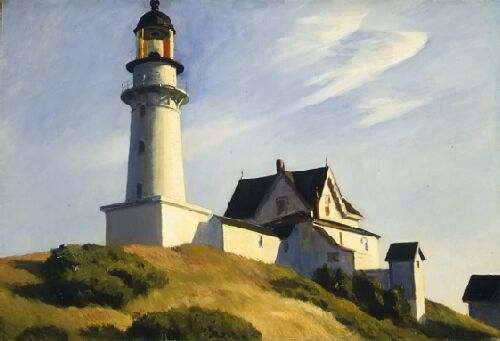
Patrick Wilson,

and Hungarian directors, I went into Evening (2007) with much enthusiasm. I left the theatre feeling anything but enthused. Based on Susan Minot's novel of the same name and directed by Lajos Koltai, Evening mixes reverie, different time periods, and gorgeous cinematography to tell the story of a dying woman's recollections of her past, specifically the wedding of her best friend decades ago.
The previews suggest that young Ann Grant (Claire Danes) and a Harris Arden (Patrick Wilson) character are responsible for the death of their friend Buddy (Hugh Dancy). The film certainly addresses this plot point....but doesn't delve into consequences of this event. I haven't read the book, so I don't know about its structure in terms of when and how the past and present collide or transition into the other, but the film is non-linear, going back and forth between the time periods as the narrative deems appropriate.
Amazon.com provides a tiny, tiny excerpt from the book as well as a scan of the back cover. Based on the book's plot synopsis, the film version altered character details and possibly the point-of-view of the story. Not POV in terms of narrator, but POV in the sense of how invested the audience is in what happens.
The past consists of the weekend of Lila Wittenborn (Mamie Gummer) and Carl Ross's (Timothy Kiefer) wedding and the circumstances that lead to the death of Lila's younger brother Buddy. The present is comprised of Constance (Natasha Richardson) and Nina (Toni Collette) spending time with their mother (Vanessa Redgrave) on her death bed. The conversations that take place in the present cover topics such as whether Nina is happy, whether Nina is ever going to settle down, and why Nina is so curious about the people that her mother mentions during fits of half-sleep. The scenes of the past explain who these people are to the viewer. Constance and Nina never get these visuals. There's a brief segment where they are looking through their mother's old letters and cards, but there aren't any photographs that the viewer is aware they have seen. The viewer learns about what Ann Grant was like as a young woman, her daughters do not. Nina gets a healthy dose of life lessons--too bad she's not nearly as compelling. In fact, the past is a much more interesting place than the present; it's certainly more pleasing to the eye.
The cinematography, courtesy of Gyula Pados, is fantastic. He only has a dozen titles to his resume as a director of photography, but as Kontroll (Nimrod Antal, 2003) and Fateless (also directed by Lajos Koltai, 2005) demonstrate, Pados is more than qualified for the job. Furthermore, having worked with Koltai once before on Fateless, adapted from the novel by Hungarian novelist Imre Kertesz, he undoubtedly developed an awareness of the director's tendencies and modus operandi on the film set.
The past segments are strikingly reminiscent of Edward Hopper and Maxfield Parrish paintings.

Here's the film's poster. The film beginning credit sequence is similar to the color's here.

Edward Hopper's paintings.


by Maxfield Parrish.
Evening has so much going for it. A great cast, amazing visuals, and solid directing throughout. So why did I leave the film saying aloud to the parking lot, "I didn't like it." I probably need to read a longer passage from the novel to get a better understanding of the novel's structure and "mise-en-scene," but from the short excerpt provided by Amazon.com, it seems that Koltai has effectively captured the tone of the source. Observe:
A new lens passed over everything she saw, the shadows moved on the wall like skeletons handing things to each other. Her body was flung back over a thousand beds in a thousand other rooms. She was undergoing a revolution, she felt split open. In her mattress there beat the feather of a wild bird.
I found it very refreshing that the past and present didn't meld into one another via tracking or pan shot of an object or crossing a threshold. Narratively, the film's weakness had to do with what happened after Buddy dies. Aside from a lot of tears and a mother played by Glenn Close convulsing, the whole concept of guilt as an emotion or legal consequence never surfaces.
The film does, however, convey the notion of regret but not in any devastating kind of way. I guess it would've been too cliched if Nina's curiosity takes over the furthering of the plot (and subsequently the scenes of the past) by discovering specific letters and photographs of the relevant people; and thus she pieces together what happened that weekend that would cause her mother to hover over it while she's breaths away from death.
FYI: Susan Minot co-wrote the adapted screenplay with Michael Cunningham, who also wrote the novel on which The Hours (Stephen Daldry, 2002) was based. He also produced it. So whatever wrong with the adaptation is "hard to pin down."
Meryl Streep plays old Lila.

Barry Bostwick and Glenn Close as young Lila's parents.

Susan Minot's book:

Here's a funny story about this film. Evening and Nancy Drew are connected in at least three ways.
1 The film makes a direct reference to Nancy Drew in a dialogue piece.
2. Barry Bostwick is in both films.
3. Patrick Wilson was in Little Children with Jennifer Connelly, who was also in A Beautiful Mind. Ed Harris was in A Beautiful Mind as well as Step-mom, and so was Julia Roberts. Her niece is Emma Roberts, the star of Nancy Drew.
4. Claire Danes was in A Little Women with Susan Sarandon, who was also in Step-mom with Julia Roberts, whose niece is Emma Roberts, the title character in Nancy Drew.
The trailer of Evening
pic creds: google image search, yahoo movies, amazon.com
Originally posted at Sthemingway
A revised version of this review can be found at FilmThreat
No comments:
Post a Comment